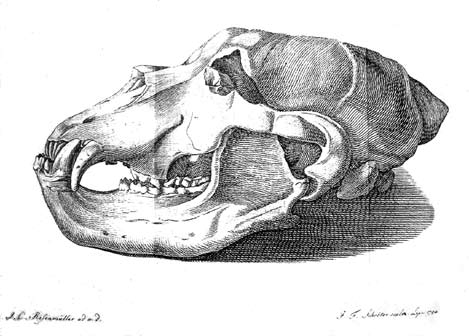Cave Bear, Cave Lion and Cave Hyena Skulls from the Public Collection at the Humboldt Museum in Berlin
DOI:
https://doi.org/10.3986/ac.v38i2-3.126Abstract
The Linnean binomial system rests on the description of a holotype. The first fossil vertebrate species named accordingly was Ursus spelaeus, the cave bear. It was described by Rosenmüller in 1794 in his dissertation using a skull from the Zoolithen Cave (Gailenreuth Cave) in Frankonia, Germany. The whereabouts of this skull is unknown. In the Humboldt Museum, Berlin, historic skulls of the three “spelaeus species” (cave bear, cave lion, cave hyena) are displayed. We were allowed to investigate them and further material in the Museum’s archive in an attempt to locate the holotype skull. Here we report about our findings giving pertinent measurements of this historic material and depicting it for the first time. Studying the old labels we were able to establish the provenience of much of the material that includes in fact specimens from the original Rosenmüller collection. One of the cave lion skulls may actually be the one used in establishing the cave lion by Goldfuß (Diedrich 2008) while another may be the original that was used to define a “cave wolf ”.
Downloads

Downloads
Published
How to Cite
Issue
Section
License
Authors guarantee that the work is their own original creation and does not infringe any statutory or common-law copyright or any proprietary right of any third party. In case of claims by third parties, authors commit their self to defend the interests of the publisher, and shall cover any potential costs.
More in: Submission chapter




